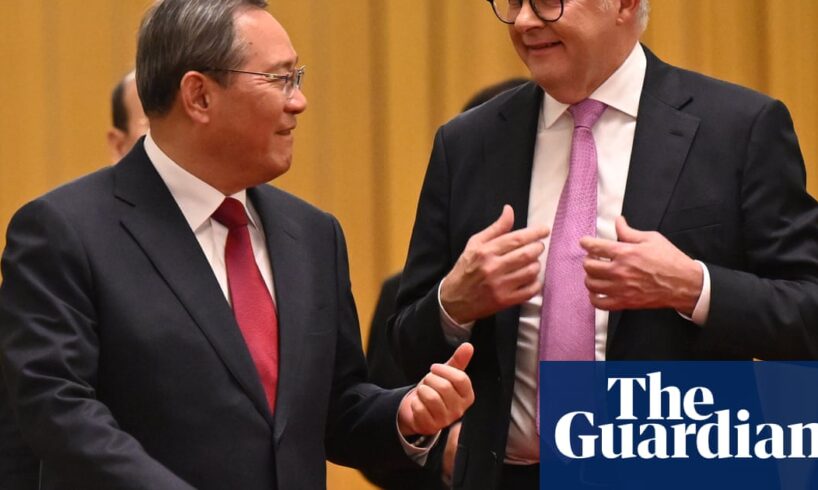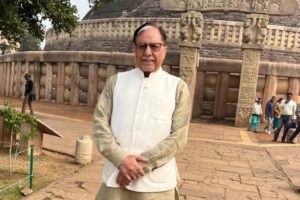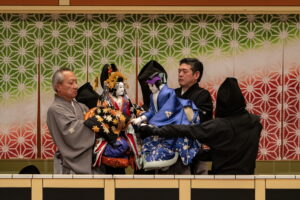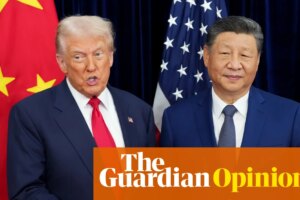
Anthony Albanese may be humming Paul Kelly and Powderfinger when his plane lands back in Australia from China on Friday.
After more than two hours of talks with the country’s president, Xi Jinping, a series of successful business events, and a retracing of Gough Whitlam’s steps at the Great Wall, the prime minister is likely to view his six-day visit as a diplomatic home run.
A trip designed to capitalise on the increasingly warm relations between Beijing and Canberra showed all signs of success, with a special lunch organised to fete Albanese and his fiancee, Jodie Haydon, and even a band playing Australian hits such as Kelly’s To Her Door and Midnight Oil’s Power and the Passion for a music-mad PM.
Though carefully stage-managed, the good vibes are a long way from a low point hit just a few years ago, when China put trade bans on $20bn of Australian exports and ministers in Scott Morrison’s government could not get calls returned. China’s envoy in Canberra even took the extraordinary step of issuing a list of 14 grievances with Australia.
Labor’s efforts in its first term to calm tensions and foster cooperation are clearly paying dividends.
Speaking at the start of his talks with Albanese in the Great Hall of the People, Xi praised an ongoing common understanding, even as US President Donald Trump wreaks havoc with the international trade system and senior Pentagon figures push Australia to explain how we would respond to a conflict between China and Taiwan.
“No matter how the international landscape may evolve, we should uphold this overall direction unswervingly,” Xi told Albanese, who responded that close ties had already produced “very positive benefits” for both sides.
Local state-controlled media buzzed about the visit, praising the “turnaround” and suggesting China-Australia relations were on track to “cruise steadily in the ‘stratosphere’”. Greater numbers of Chinese tourists are expected and the chair of the National People’s Congress will lead a delegation to Australia soon.
Albanese managed to walk a tightrope of expectations in the meeting at the Great Hall of the People, raising the case of detained Chinese-Australian academic Yang Hengjun, while avoiding frustrations about Australia’s foreign investment controls and the government’s determination to bring the Port of Darwin back into Australian control.
We learned on Wednesday that these more difficult issues were raised after Albanese met Xi, during his lengthy talks with China’s premier, Li Qiang.
Li complained Chinese businesses were facing unfair scrutiny under Labor’s changes to Foreign Investment Review Board approval rules, and that there was no reason for Chinese-owned infrastructure operator Landbridge to be stripped of its 99-year lease to control the Darwin port.
skip past newsletter promotion
Sign up to Breaking News Australia
Get the most important news as it breaks
Privacy Notice: Newsletters may contain info about charities, online ads, and content funded by outside parties. For more information see our Privacy Policy. We use Google reCaptcha to protect our website and the Google Privacy Policy and Terms of Service apply.
after newsletter promotion
Rare earths: how these critical minerals impact Australian industry and global politics – video
“We hope that the Australian side can provide a fair, open, and non-discriminatory business environment for Chinese enterprises in Australia,” Li said.
Media mouthpiece the Global Times used its coverage to warn against “third-party interference” in the relationship – code for the White House leaning on allies to step up defence spending and detail plans for any conflict in the region.
Albanese and foreign minister, Penny Wong, have a successful framework for handling the ups and downs of Australia’s biggest trading relationship. They say Australia and China will cooperate where we can, and disagree where we must.
The formula could be put to the test when the prime minister does finally sit down with Trump, or if Xi follows through with long-held plans to retake Taiwan by force by 2027. Even a less significant flare-up could set back closer ties.
But for now at least, Albanese can bask in the kind of glow won by Whitlam’s historic 1971 visit, humming Powderfinger and celebrating a successful rapprochement.
Tom McIlroy is Guardian Australia’s chief political correspondent





